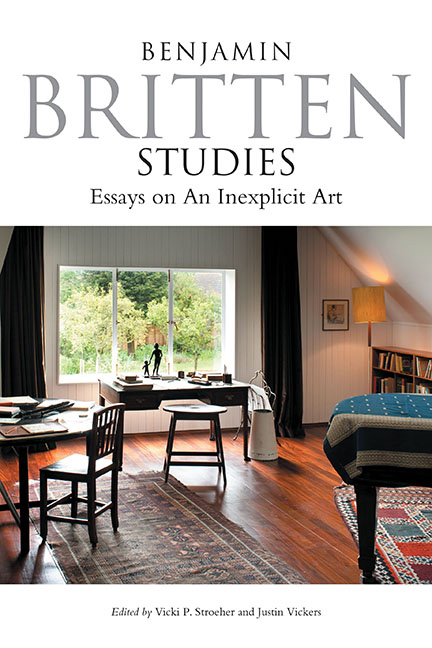Book contents
- Frontmatter
- Dedication
- Epigraph
- Contents
- List of Illustrations
- List of Musical Examples
- List of Tables
- Notes on Contributors
- Acknowledgements
- Bibliographic and General Abbreviations
- Editors’ Preface
- Introduction: Writing About Britten
- Part I Identity: Exile and Return
- Part II Britten and Intimacy
- 5 “Save Me From Those Suffering Boys”: Britten, John Ireland, and the Venerable Tradition of Uranian Boy-worship in England
- 6 Britten's (and Pears's) “Beloved”: Sacred Parlor Song, Passion, and Control in Canticle I
- 7 Notes of Unbelonging
- Part III Britten and His Craft
- Part IV Britten and Matters of Practicality
- Conclusion and Epilogue
- Works Cited
- Index
5 - “Save Me From Those Suffering Boys”: Britten, John Ireland, and the Venerable Tradition of Uranian Boy-worship in England
from Part II - Britten and Intimacy
Published online by Cambridge University Press: 25 October 2017
- Frontmatter
- Dedication
- Epigraph
- Contents
- List of Illustrations
- List of Musical Examples
- List of Tables
- Notes on Contributors
- Acknowledgements
- Bibliographic and General Abbreviations
- Editors’ Preface
- Introduction: Writing About Britten
- Part I Identity: Exile and Return
- Part II Britten and Intimacy
- 5 “Save Me From Those Suffering Boys”: Britten, John Ireland, and the Venerable Tradition of Uranian Boy-worship in England
- 6 Britten's (and Pears's) “Beloved”: Sacred Parlor Song, Passion, and Control in Canticle I
- 7 Notes of Unbelonging
- Part III Britten and His Craft
- Part IV Britten and Matters of Practicality
- Conclusion and Epilogue
- Works Cited
- Index
Summary
One of Ursula Vaughan Williams's favorite anecdotes concerned a Russian friend who, suddenly exposed to several of Britten's dramatic works within the space of two weeks and reeling from a performance of The Turn of the Screw (1954), exclaimed: “Save me from those suffering boys!” Relating this story, Vaughan Williams added the summation: “But she had no doubt as to the high quality of the music, you see, my dear, but Ben's particular idée fixe did exasperate her.” Such exasperation is hardly unique, as the enduring “problem” of Britten can be put quite simply: he had an erotic fascination with boys. His fascination was frowned upon by society during his lifetime, and is, if anything, subject to even greater opprobrium at present. It is also an enduring scandal for his partisans and a stumbling block for a number of otherwise sympathetic listeners. This is particularly true given that the music resulting from Britten's interactions with boys is among the finest of the last century.
Lest it be doubted that boys, and, in particular, suffering boys, constituted one of Britten's favorite topics, here is a partial list of scores dealing with this theme: the operas Peter Grimes (1945), The Turn of the Screw, Curlew River (1964), and The Burning Fiery Furnace (1966); smaller dramatic works such as The Little Sweep (1949) and The Golden Vanity (1966); cantatas such as The Children's Crusade (1968) and Saint Nicholas (1948). The latter is particularly notable for its vivid recounting of a miracle dealing with an hapless group of pickled boys.
Britten's attraction to boys was well known by his musical and life partner, Peter Pears. In a letter meant to cheer up the despondent composer, Pears wrote in 1949: “Don't worry, and remember there are lovely things in the world still – children, boys, sunshine, the sea, Mozart, you and me.” Note the distinction that Pears makes between “children” and “boys.” By doing so, Pears was anticipating psychological distinctions that would become current some fifty years later.
- Type
- Chapter
- Information
- Benjamin Britten Studies: Essays on An Inexplicit Art , pp. 178 - 191Publisher: Boydell & BrewerPrint publication year: 2017



